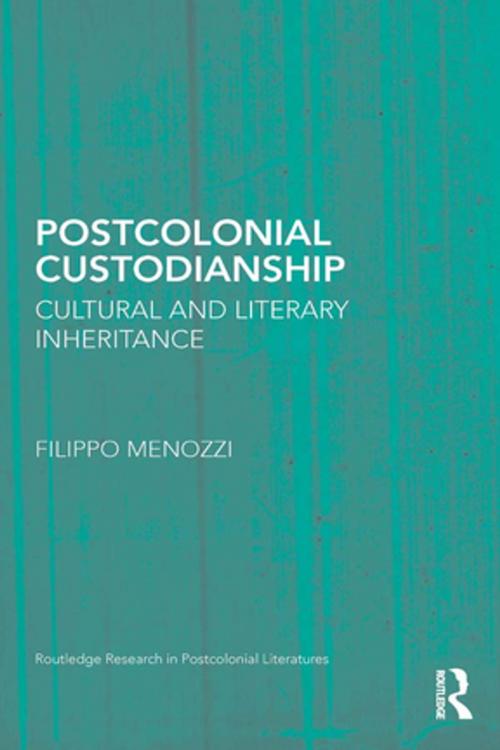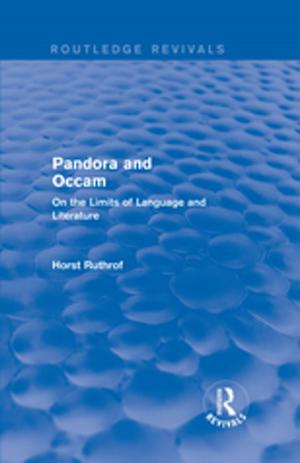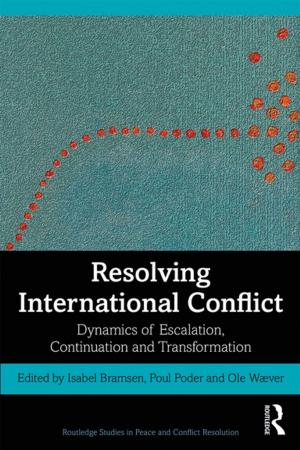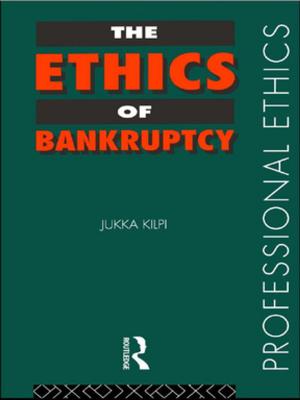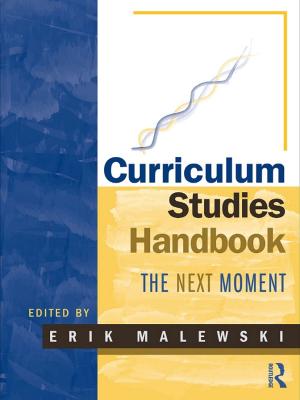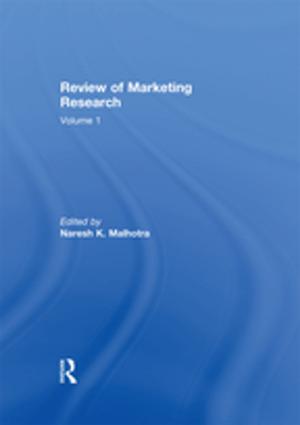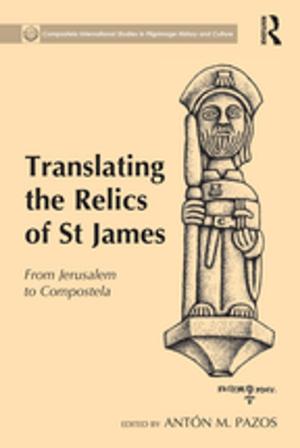Postcolonial Custodianship
Cultural and Literary Inheritance
Fiction & Literature, Literary Theory & Criticism| Author: | Filippo Menozzi | ISBN: | 9781317818083 |
| Publisher: | Taylor and Francis | Publication: | February 5, 2014 |
| Imprint: | Routledge | Language: | English |
| Author: | Filippo Menozzi |
| ISBN: | 9781317818083 |
| Publisher: | Taylor and Francis |
| Publication: | February 5, 2014 |
| Imprint: | Routledge |
| Language: | English |
This book engages with current developments in postcolonial research, exploring notions of cultural transmission, tradition and modernity, authenticity, cross-cultural aesthetics and postcolonial ethics. The author considers the ethical responsibility of the postcolonial intellectual, enhancing our understanding of this topic through the concept of custodianship, which may be defined as a responsibility towards the other in forms of cultural and literary inheritance. The author introduces custodianship as a central theme and a vital question for the committed intellectual today, proposing original interpretations of major postcolonial texts by key figures including Anita Desai, Gayatri Chakravorty Spivak, Mahasweta Devi and Arundhati Roy. Through close reading and historical analysis, Postcolonial Custodianship reveals that a practice of custodianship has always been an essential element of these writers’ ethical engagement, yet in a way that has never been explored. The author contends that the question of custodianship should not be seen as a merely negative designation; it is by redefining the very meaning of custodianship that the ethical dimension of postcolonialism can be rediscovered.
This book engages with current developments in postcolonial research, exploring notions of cultural transmission, tradition and modernity, authenticity, cross-cultural aesthetics and postcolonial ethics. The author considers the ethical responsibility of the postcolonial intellectual, enhancing our understanding of this topic through the concept of custodianship, which may be defined as a responsibility towards the other in forms of cultural and literary inheritance. The author introduces custodianship as a central theme and a vital question for the committed intellectual today, proposing original interpretations of major postcolonial texts by key figures including Anita Desai, Gayatri Chakravorty Spivak, Mahasweta Devi and Arundhati Roy. Through close reading and historical analysis, Postcolonial Custodianship reveals that a practice of custodianship has always been an essential element of these writers’ ethical engagement, yet in a way that has never been explored. The author contends that the question of custodianship should not be seen as a merely negative designation; it is by redefining the very meaning of custodianship that the ethical dimension of postcolonialism can be rediscovered.
